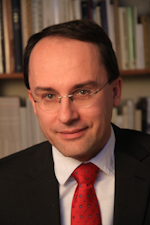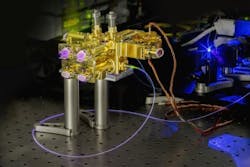On September 26, 2018, the German government decided to fund the development of quantum technologies in Germany with €650 million within the current legislation period. This comes on top of the €1 billion European flagship initiative on quantum technologies.
Together with the official announcement, the German Federal Ministry of Education and Research BMBF published a 50-page document for the framework program "Quantentechnologien – von den Grundlagen zum Markt" (Quantum technologies – from basics to markets; see video). It says that the program will add €650 million to the annual governmental research funding for quantum research of approximately €100 million. The new program is planned for 2018–2022, with a possible extension to 2028.
The program is a combined effort of the BMBF, the Ministry of Economics, the Ministry of the Interior, and the Ministry of Defence, which all will participate with their own measures.
The program sets a number of goals that go far beyond basic research:
1. Expanding the research landscape of quantum technologies
2. Creating research networks for new applications
3. Establish lighthouse projects for industrial competitiveness
4. Ensuring security and technological sovereignty
5. Shaping international cooperation
6. Taking the people of our country with us
These goals will extend the successful funding policy of the first quantum revolution, namely the laser technology. That means the program will fund basic research as well as common projects with industrial partners to ensure maximum impact of the involved money. All major research organizations such as the Max-Planck, Fraunhofer, Leibnitz and Helmholtz societies plus several IT institutions participate in the program.
The last goal of the program comes somewhat unexpected, it covers measures to explain quantum technologies to the German citizens, mainly through programs which bring quantum technologies into schools and other educational schemes.

Andreas Thoss | Contributing Editor, Germany
Andreas Thoss is the Managing Director of THOSS Media (Berlin) and has many years of experience in photonics-related research, publishing, marketing, and public relations. He worked with John Wiley & Sons until 2010, when he founded THOSS Media. In 2012, he founded the scientific journal Advanced Optical Technologies. His university research focused on ultrashort and ultra-intense laser pulses, and he holds several patents.
